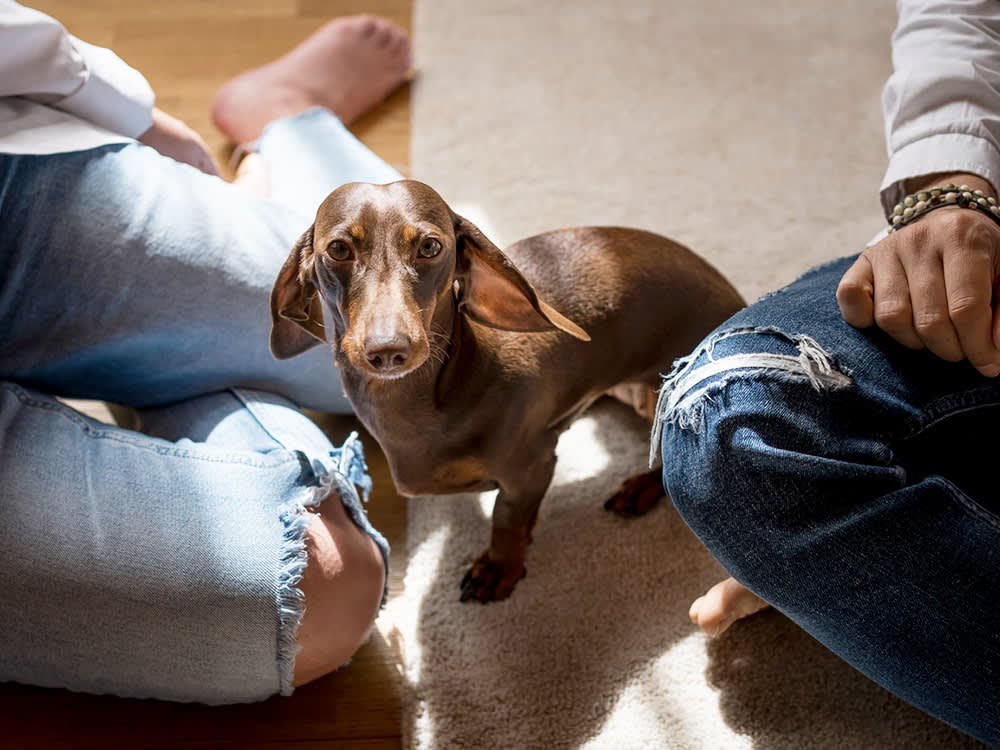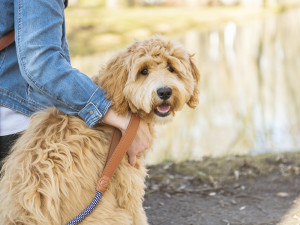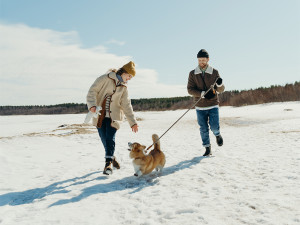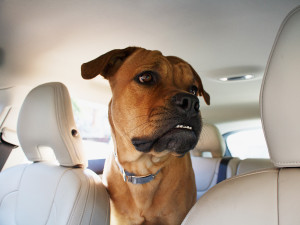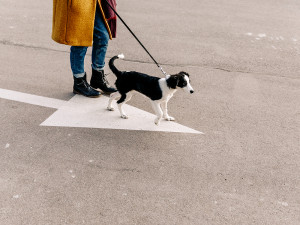What to Do When Your Partner Doesn’t Want a Dog
Persuasive strategies to convince your partner they do want a dog
Maybe you failed to put ‘must love dogs’ in caps on your dating profile. Maybe your partner thinks puppies are cute but isn’t sure about all the dog-walking responsibility. Regardless, your partner doesn’t want a dog, so what’s a pup-loving person to do?
When one half of a couple wants a dog and the other doesn’t, the first step is to figure out what their objections are. Many people who are opposed to getting a pup like the idea in general but are held back by one or more particular concerns. If you can come up with a solution to what your partner views as the problem, you increase your chances of successfully convincing them to add a pet to the family.
Financial objections
It’s true that it costs money to have a dog – and the prospect of extra expenses understandably freaks out a lot of people. So, it’s important to figure out how easily your budget can accommodate an increase in spending. If you can save money ahead of time for your future pup’s needs, that shows your partner that you understand the concern and that your household can make it work. These days, pet insurance can make a big difference. Sometimes it’s necessary to cut something else out to convince your partner that you can swing it.
Lifestyle changes
Many people worry that having a dog will make it harder to go out in the evenings, to go away for the weekend, or to take holidays. It’s a legitimate concern – raising a pup means that spontaneous outings present challenges, so it’s important to have a plan to meet them. Find out who can care for your dog when you are away or if you want to go out after work. Consider daycares and boarders, dog walkers, dog sitters and neighbours you could get to help you. Pet-friendly restaurants and hotels are becoming more and more popular, so your pup may even be able to tag along. And while taking your dog on a long-haul trip may be off the cards, camping with dogs is definitely a great way to have an adventure together.
Fear of failing the dog
Having a dog is a lot of responsibility, and that can make many people nervous, especially if they have never been a pet parent before. Assuage your partner’s nerves by researching resources in your area such as trainers, behaviourists and vets. Doing your homework about the basics of dog behaviour and care will help you both feel more confident about bringing home a new dog.
Shedding and slobbering
Not everybody is unbothered by muddy paw prints and (let’s be honest) nobody is totally OK with dog vomit or what happens to the carpet while potty training is still a work in progress. The really gross things tend to happen rarely, but the slobbering by the water bowl and dog hair are daily occurrences for many pet parents. Whether you promise to step up your scrubbing or shell out the money to hire people to clean your house, it’s important to at least propose a solution. It’s also sensible to choose a dog who is less likely to drool and shed than the slobber-and-fur nightmare your partner is picturing.
Compatibility with other pets
If your partner is concerned about how a dog will affect your cat, for example, consider yourself lucky to have such a thoughtful and caring human living in your house. It’s very sad when a cat who has been happy in a home is suddenly living under the bed because they are terrified of the dog. In not-so-surprising news, a dog will fit into the family far better if you choose one who actually gets along with cats, so make that a top priority. Additionally, it’s smart to commit to doing the initial introduction with a professional trainer or behaviourist to make the dog-cat match more successful.
Concessions and deal breakers
Along with addressing any of the specific concerns that your partner has about getting a dog, here are some additional tips that may help you convince them. Let your partner have the final say on which dog you choose, and a lot of input into what kind of pup to consider: old, young, big, small, long or short hair, Hound or Terrier, or other type. Because your partner is (at best) on the fence about the whole dog thing, you may be able to tip the scales in your favour by giving them a weighted vote.
Let your partner know how important it is to you that you get a dog. Although it makes sense that if you want a pup so much, your partner should consider it, there’s obviously a flip side to that. If getting a dog is so unappealing to your partner, you need to respect that as well. Feeling very differently about this subject can cause a serious rift in a relationship, and the only sensible advice is to not let this difference ruin the relationship – unless it truly is a deal breaker for you.
Try a trial run
Becoming a pet parent is a big deal, and that can be intimidating to some people. A trial run of sorts could help your partner feel more comfortable with this big step. Consider watching a friend’s pup for a few days or fostering a dog, so you can try out what it feels like to have one in your life without the long-term commitment. Even if they shed all over the place, the joy of living with a dog temporarily has convinced many people to get one of their own.
